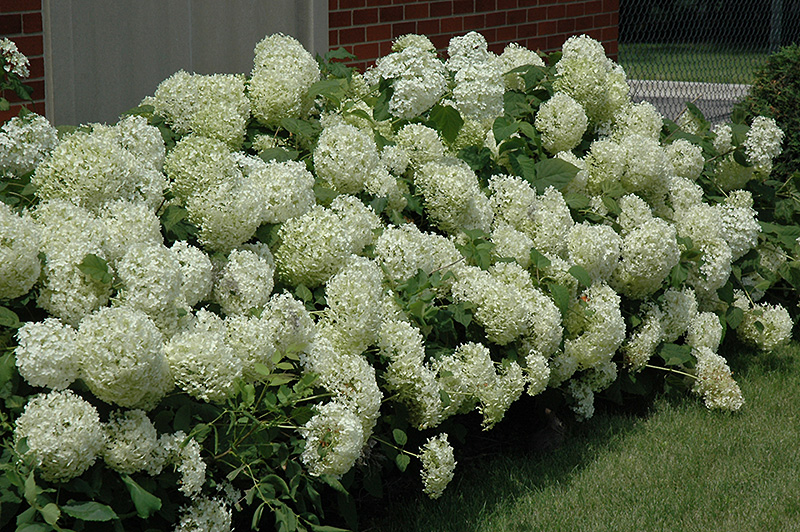>> Home
Annabelle Hydrangea
Hydrangea arborescens 'Annabelle'
Height: 4 feet
Spread: 5 feet
Sunlight:
![]()
![]()
![]()
Hardiness Zone: 3
Other Names: Hills of Snow Hydrangea, Snow Hills Hydrangea
Description:
A hardy, showy shrub which features enormous ball-shaped white flower heads in mid summer, lasting for a long time; blooms on new growth; somewhat coarse
Ornamental Features
Annabelle Hydrangea features bold balls of white flowers at the ends of the branches from mid to late summer. The flowers are excellent for cutting. It has forest green deciduous foliage. The heart-shaped leaves do not develop any appreciable fall color.
Landscape Attributes
Annabelle Hydrangea is a multi-stemmed deciduous shrub with a more or less rounded form. Its strikingly bold and coarse texture can be very effective in a balanced landscape composition.
This shrub will require occasional maintenance and upkeep, and is best pruned in late winter once the threat of extreme cold has passed. Gardeners should be aware of the following characteristic(s) that may warrant special consideration;
- Suckering
Annabelle Hydrangea is recommended for the following landscape applications;
- Accent
- Mass Planting
- General Garden Use
Planting & Growing
Annabelle Hydrangea will grow to be about 4 feet tall at maturity, with a spread of 5 feet. It tends to be a little leggy, with a typical clearance of 1 foot from the ground. It grows at a fast rate, and under ideal conditions can be expected to live for approximately 20 years.
This shrub performs well in both full sun and full shade. It prefers to grow in average to moist conditions, and shouldn't be allowed to dry out. It is not particular as to soil type or pH. It is highly tolerant of urban pollution and will even thrive in inner city environments. Consider applying a thick mulch around the root zone in winter to protect it in exposed locations or colder microclimates. This is a selection of a native North American species.

